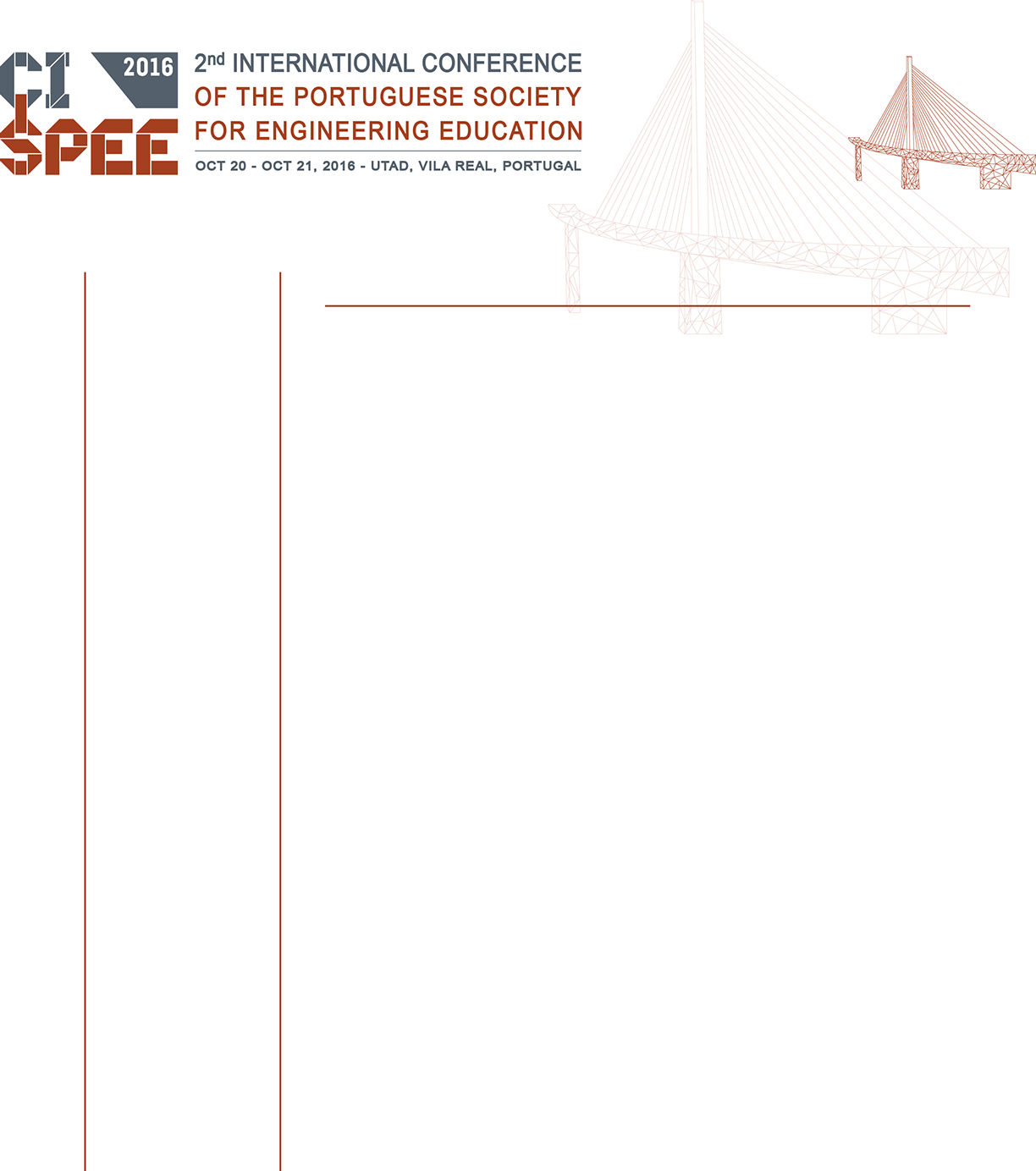
SPONSORS
SPONSORS
SUPPORTED BY
SUPPORTED BY











CALL FOR PAPERS AND TOPICS
CALL FOR PAPERS AND TOPICS
The Portuguese Society for Engineering Education (SPEE) (http://spee.org.pt/) organizes its 2nd International Conference (CISPEE 2016) under the theme: “(Re)Thinking Higher Engineering Education”. The event aims to provide an opportunity for presenting and discussing the topics listed below, which generally affect all Engineering schools. In addition to thematic sessions, the conference program will also include a number of keynotes addressing important aspects in Engineering Education. The social program saturday during and after the conference wishes to promote the exchange of ideas and contacts between the participants.
Call for Papers in English
Topics of interest
Engineering Ethics
• Embedding Ethics in Engineering Education
• Teaching Codes of Ethics
• Plagiarism
• Credits, Rights, and Responsibilities of Dissertation Advisor
• Reverse Engineering
• Role of Engineers in Society
• Ethics and Risk Assessment
ICT in Engineering Education
• Computers in Engineering Education
• Mobile Devices in Education
• Human-Computer Interaction
• Web Interface Design
• Collaborative Environments and Tools
• Assessment Tools
• E-learning in Engineering Education
• Multimedia Contents for e/b/m-learning
• Augmented and Virtual Reality
• Serious Games
Continuing Engineering Education (CEE)
• Joint academic-industry initiatives in CEE
• Curricula Development in Engineering Degrees
• Role of Professional and Technical Societies in CEE
• Role of Government in CEE
• CEE programs and initiatives
• Lifelong Learning in Engineering
• Impact of Educational and Scientific Research in Engineering Programs
• Informal and non-formal Learning in Engineering
• Non-traditional students in Engineering
• Economical aspects of CEE
• Training in the workplace as part of CEE
• The contributing role of CEE for job creation in a global economic crisis
Tools to Develop Higher Order Thinking Skills
• Concept Mapping for Learning and Assessment
• Self-regulated Learning Strategies
• Problem solving and Creativity
• Critical Thinking in Engineering
• Designing Courses for Higher Order Thinking
• Using Online Tools to Facilitate Learning
• Communication Skills for Technical Thinkers
• Information Literacy and Our Tech-savvy Students
• Developing Skeptical Thinkers
Mathematics in Engineering Education
• Logic Knowledge and Mathematical Competences in Engineering
• Computational Tools for Teaching Mathematics in Engineering
• Use of Mathematical Models and Simulators in Engineering Education
• Statistics in Engineering Education
• Case Studies
Future Outlook of the Profession and Education in Engineering
• Engineering Education and Engineering, innovation, social and economic development
• Engineering Education and Engineering, technology and society
• Engineering Education and Engineering: Social Responsibility and corporate Social Responsibility
• Engineering Education and Engineering: Emerging Issues and Challenges
• Engineering Education and Engineering foresight and forecasts of the future
• Emerging and future areas of Engineering Education and Engineering